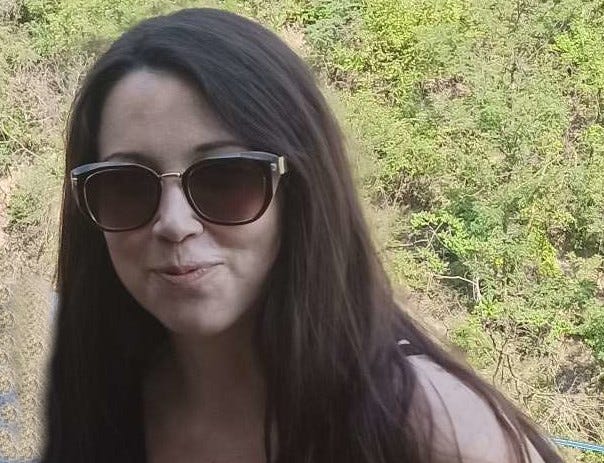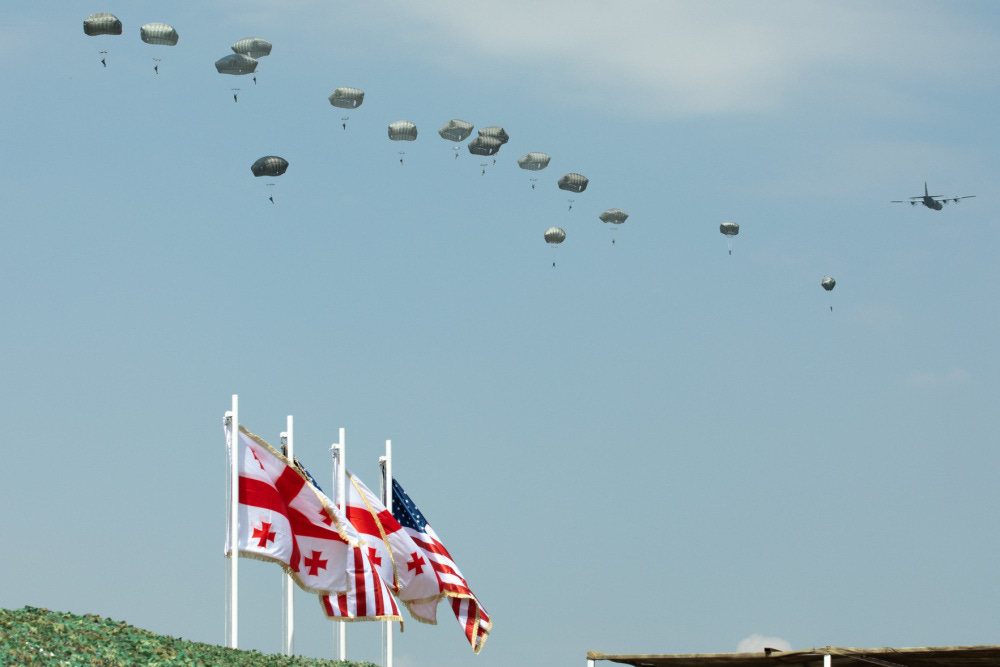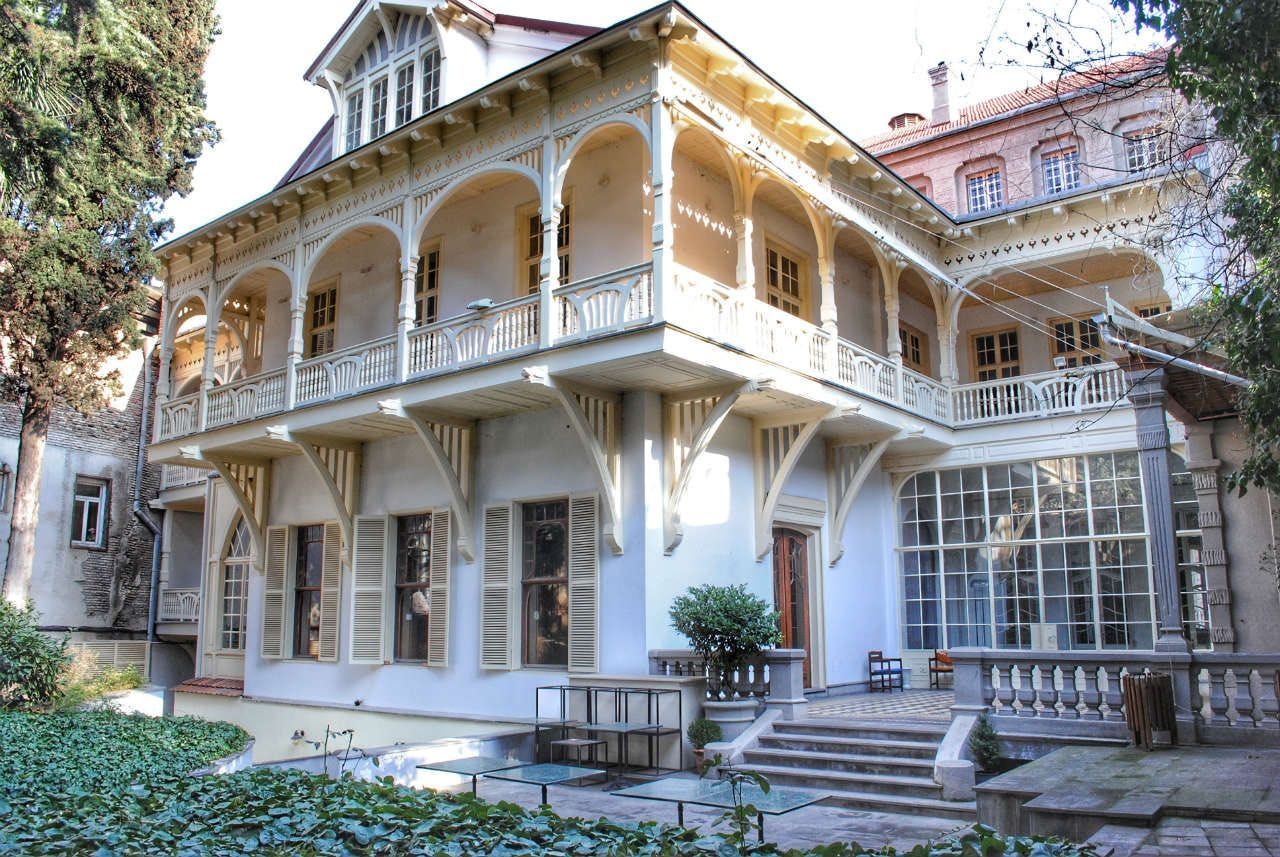Update: Interpress News, Mar 9, 2022 — Person accused of killing Australian citizen Shanae Brooke sentenced to 20 years in prison
Tbilisi, Aug 2, 2021
Shocking news to the small expat community of Tbilisi. Volunteers spent late Friday and Saturday walking the slopes of Mtatsminda Park which overlooks the Georgian capital after an Australian woman had called a friend to say she was being attacked, before her phone was cut off.
The body of Shanae Brooke Edwards was found at the weekend. The 31 year-old had been hill-walking on paths below the Tbilisi TV Broadcasting Tower when she made the call at about 4 o’clock, Friday afternoon.
The affair has gained little attention in the media, most damingly, abroad. This is especially noticeable if you recall the attack on Georgian journalist Alexander Lachkarava who was beaten before a planned Gay Pride march last month.
Those protests and counter-protests by religious and other groups made headlines around the world, mainly at the instigation of the BBC and Radio Free Europe. When Lachkarava died of his injuries in mid-July, the coverage was renewed.
NGOs issued statements, including Reporters Without Borders, which described his death as “a calamitous turn for freedom of information.”
This death is different, but it is still newsworthy and it is being ignored. Young people go in search of work abroad — not all of them tourists, or wealthy, or slackers. Many can’t make a living at home or find themselves adrift for personal reasons.
The media is happy to tantalize us with images of digital nomads, flip-flopped on the beach. The Guardian newspaper has published at least 30 such articles in the past five years. When risks show their face, the press looks away.
You would think the murder of a young woman, who had lived in Georgia for 18 months teaching English, might get some attention.
Georgia has been promoting itself as a home for digital nomads. The idea is that by working online they do not take jobs from locals but they do pay tax and so boost the economy, especially with the pandemic having hit tourism.
Already a some people say they are reconsidering plans to move to the country. Tbilisi police and the interior ministry say they are investigating the Australian’s death as murder.
The government is likely to move quickly to reassure foreigners. The country has a safe reputation and it would want to reiterate that message.
Still, local residents are angry. One person using the handle PreviousAgent1727 commented on Reddit after Shanae disappeard:
“She is still missing? So the day Lashkarava died MIA (the Ministry of Internal Affairs) was able to get all the videos from CCTV cams across the city and when a tourist goes missing in ONE specific area no-one knows shit?”
The victim walked from the Church of Mikhail of Tver, which stands on the highest main road before the mountain. Having climbed that way myself, I can say that some of the gullies are used by drug abusers. You need to watch out for needles. On the main paths you’ll come across other walkers but it’s never crowded.
Hiking is one of the main reasons foreigners choose Georgia and the solitude is an added attraction.
Why is the international news media not interested? Speaking as a former executive producer in news, nowadays it takes a beheading to get the kind of attention that the death in Morocco of Danish and Norwegian hikers received in 2018. Unless the death fits into a pre-formed political narrative.
Our increasingly politicized culture doesn’t help. Another poster on Reddit was quick to impose a frame on events:
“I'm scared for my LGBTQ+ friends... I'm scared for my black friends, hell, I'm scared for my straight friends that have earrings! Georgia is the only country I have been assaulted in and where I have felt unsafe walking in the streets at night (and even during the day) because of creepy men.”
If that was so, then the media would be quick on the uptake. Why is it silent? This narrative is no more accurate than the media’s.
A citizen brought a little sense and perspective. A Reddit user by the handle of zeronbelow wrote:
“As a local I'm deeply shocked such a thing could happen in my city. It's very disturbing to hear such news. I assure you this is a rare case but sadly if you talk to any girl living here who uses public transport or walks the streets alone they will tell you it's sometimes not safe out there, especially if you like to dress differently, I don't know how, or why this happened, I feel ashamed.”
In the meantime, say a prayer for Shanae, wait for information, and urge the media to get off its politically correct high horse.
Georgia Plays Host to NATO
Georgian paratroopers jumped with their American counterparts at Vaziani air base on the weekend, in what Georgia might see as a turning point, as far as military training goes.
Agile Spirit 2021 comes as the western presence in Afghanistan winds down, at least in nominal forces, and Georgian troops pull out of the South Central Asian nation.
That’s not how Russia sees it. Fifteen nations are taking part in NATO’s exercises in Georgia, following on from Tracian Star in Bulgaria in July.
Moscow says the 2,500-strong troop maneuvers are part of an increasing number of NATO drills that simulate “warding off the so-called threat from the East,” Russian Deputy Foreign Minister Alexander Grushko said on Friday. “Such drills cannot but cause our legitimate concern."
The forces represent 12 NATO member states, hosts Georgia and also Azerbaijan and Ukraine.
As Robert E. Hamilton, of the U.S. Army War College and an advisor to the Georgian Ministry of Defense wrote in the journal Defense One with Heritage Foundation’s Luke Coffey, the end of their Afghan mission means the end of their training by U.S. marines. A total of 22,175 Georgian soldiers served in Afghanistan and 8,495 in Iraq.
In parallel the Georgian Defense Readiness Program trained battalions to defend their own borders. That also ends this year. If Georgia is looking to continue its involvement it may attempt to repeate efforts such as the contribution it made Germany’s redeployment in Afghanistan, providing transit services on Georgian soil.
Prof Hamilton makes the point that Georgia has already demonstrated its capabilities to NATO, to a greater extent than some previous applicants. Membership is now a political question.
That won’t assuage Russian concerns. President Vladimir Putin’s press secretary Dmitry Peskov pointed out that NATO infrastructure, “not only surrounds our borders, but also touches our borders.”
That prompted Georgia’s deputy foreign minister Lasha Darsalia to reiterate the country’s right to military exercises on its own territory.
Russian forces are present in the former Georgian territories of Abkhazia and Tskhinvali/ South Ossetia. While Georgia loudly protests what it calls the Russian occupation, Russia’s interest in these districts is clearly influenced by what’s on the other side.
You can see that region clearly from this map excerpt uploaded by the Georgian embassy to the U.S.. It includes Chechnya, Dagestan, Ingushetia, Kabardino-Balkaria and Karachay-Cherkessia.
These autonomous districts of Russia’s North Caucasian Federal District are stricken by poverty and threatened by religious and political instability. They have a terrorist problem, Chechens being the best known but not alone, and the remote region is hardly conducive to security.
Agile Spirit 2021 continues until August 6.
A Literary Farce
The annual literary contest ‘Litera,’ organized by the Writers' House of Georgia, has witnessed a farce that could come out of Soviet-era slapstick.
The former Palace of the Arts, as it was called in the first days of Georgia’s sovietization, was run by the committee of the Artists’ Union and later its offshoot, the Writers’ Union.
These professional unions acted as an arm of the regime, policing and censoring their members. Forced self-criticism and denunciation was common, while writers used their talents to invent manifestly ridiculous crimes with which to accuse rivals.
During one meeting of the union, the poet Paolo Iashvili committed suicide by shotgun on the floor above. Many suspect he was murdered on Soviet orders.
Today the building on Ivane Machabeli Street is part of the Ministry of Culture but it hasn’t entirely shed the ghosts of its past.
The Litera prize is in doubt after participants accused the ministry’s representative of trying to rig the jury. They say pro-government commentator Ioseb Chumburidze has no place helping to choose the panel and that it amounts to “attempted censorship.” The row has prompted almost a fifth of the nominees to withdraw.
PEN Georgia says it’s the first time the ministry has tried to select jurors and accuses it of bringing in “the cultural gendarmerie.”
Although it is a state-run agency, the Writers’ House supervisory board asserted that no member of the jury must be accountable to the ministry.
The roots of the dispute run deep. For his part Chumburidze, accused his opponents of philistinism, saying they were the same people “who took out of the Writer’s House” the portraits of 19th century poets Ilia Chavchavadze and Akaki Tsereteli.






http://dilyana.bg/new-data-leak-from-the-pentagon-biolaboratory-in-georgia/